#diversity in fiction
Text
The Bad Week on Twitter in publishing and possible SOLUTIONS to the problems discussed.
"I’m sorry, not sorry ’bout what I said
Don't lose your head"
--Anne Boleyn, Six, the Musical
Twitter updated their software back end to handle more images, so I added the full text and images into this post.
I’m aware of the fact by doing this post someone is going to say: “You hate all agents, the entire industry, you hate me, and you know nothing. I’m black balling you.” simply for doing this post or try to find solidarity, but I’m begging with a bunch of other writers that we work together on a problem I know we all collectively see. I’m doing cold reporting as well as trying to find a way through to bring us together. And this isn’t the first time I’ve tried to do this.
My personal dream is end to end diversity in the bookstore/Library without question. Indie and Barnes and Nobles alike. I was highly affected by the lack of diversity in my childhood, and it’s a gap I want to fill/be filled. I’m hoping you dream it too and are willing to work with us to achieve better numbers and better faith. I want uplift, not only for myself, but others in my position.
This has sections, I’m going to be the tdlr; first.
The sections are:
tldr; get the point already
Me and previous activism so you have some faith I'm not here to yell and you know that I have some clue about the publishing industry. I'm just the messenger don't shoot me. I'm solutions-oriented.
History of the Diversity Movement (as I know it)
Statistics
This Bad Week in Publishing on Twitter
Tangible Solutions to reach our goals.
To be clear, I'm here to report, but also use my anthropology degree in systems to try to improve the system and show everyone what we see on our end, so that hopefully the whole industry coordinates so it's not authors/writers v. agents/publishers (the people)/publicists/booksellers/editors. From talking to other authors pinning their hopes on trad publishing, we, too, ache for cooperation. And what we are hoping is that industry professionals will help us with that so we can achieve and fight for it together by extending empathy and cooperation.
I, personally, understand how asking for change feels like it might be hating you, personally, but I think the point is us coordinating together to better serve the readership. Shouldn't we focus on that?
The rest of the post is here because tumblr wouldn’t allow me to post all of the relevant images:
Too long, didn't read, get to the point already
Authors/writers are confused because what we see on our end are these statistics from Pew Research center:
Since 1980's cishet male readership has slid to lower and lower with a lot of articles speculating why, but publishers try harder to bring them back. The last numbers sliding to as much as ~80% women ~20% men readership with as much as ~90% women as serial readers.
And Black College-educated women being the now principal readers. We unfortunately don't have disabled readership numbers, but I speculate those numbers are high.
It's what sells, but we aren't given numbers on your end, so from our end, we're trying to fill a market you won't sell to, so we feel frustration. Wait, aren't we selling to a demographic that really loves diversity?
What we want is numbers from your end so we can UNDERSTAND WHY. It would also help us generally with comps, etc. We're willing to do the groundswell work to ask bookstores and readership to also pitch in. Just come and talk to us and show us what money is generally being put into a diversity book, and also give us the freedom to prove to you we can put out our most creative and sell it. We're not asking for laziness on our end and you do all the work. We're asking for cooperation and transparency.
Some background on me because clicking the profile is so hard:
I've been studying publishing since I was 13 years old. One of the first bits of advice I ever got from Writer's Digest was: Writers need to know contracts and the industry too, to protect themselves. So, I've done my best to keep up.
I've worked as a production assistant at a publishing company--though for translated works, which included editing and compiling Product Bibles. I got in by contacting the head of the company with editing mistakes (I was young and I didn't think much by doing this--I wouldn't recommend it usually. The young are brave and occasionally a bit thickheaded). I also bothered to write a rejection for someone as well.
I know the process and have listened to hours of writers telling me how it works and read blogs back in the day religiously. I can give you a history of publishing from the roots of China all the way to present day in staggeringly geekish details. You don't want to try me because it's a book.
I've read books and watched movies *just* to understand why that piece of media was hated or loved, watched countless reaction videos to books, movies, pop culture from around the world, so I can keep tabs on not just the US market, but the world market. I've collected tidbits about how other markets work and why. I wouldn't have done that without a really deep love for this industry. No one else really would care exactly how publishing is changing in Japan under the pressures of the internet in the US except industry professonals.
I've also tried over the years to find solutions to social justice problems:
I used to make every year for Nanowrimo lists of resources to write diversity until the moderators got upset one year and locked all the threads. I put my neck on the line for that. This was, BTW, long before "We Need Diverse Books" was a thing. I got a lot of hate for simply compiling the list of resources. (That was all I did and people breathed on me for it.)
I worked on the rehoming situation for the boy that was in Ohio. I sent a bunch of people to pressure the governor and sheriff's department about his welfare. And we got a result; China is going to quit adopting children out to social influencers. Holt also reconsidered their policies because I got adoptive parents, adoptees and the general public to cooperate on a single goal. Up to that point social influencers were using his situation to get money and comment on it, but not do any actions to solve it. BTW, the boy also ended up in a better situation as police followed up and made sure.
I tried to work on the communication problems with adoption in Korea.
I was the one that asked that PoC Agents and Associate PoC agents get credit on the agency listings so they could move up the world for more transparency. This caused a ground swell and now it's standard practice, with more PoC agents getting promoted as a result. I was sure I was going to get hated for that too.
I also questioned the whole "PoC/diversity fad" thing, though I'm not sure if it was completely from me, but I was one of the voices that asked is this really necessary after mass trauma? What should mswls look like for diversity?
I had a thread on why your book would be banned in support of ALA's Banned Book week to get people thinking in a fun way about the impact of banned books and if it is possible to ever write a book that won't get banned (and the answer is no.)
I also did a few loose surveys on number of rejections before being published and a general writer survey on Nanowrimo to get a sense of the demographics (The long questions list was so writers could practice interview questions and help those who had school projects on Nanowrimo.) I learned a lot from running those surveys, such as how to respect other writers and if identity correlated to how likely someone was going to get published.
I've also tried to help authors/graphic design artists, etc with reading contracts on occasion too.
My activism has been minor because I have limited wavelength for drama, but I've done my best to contribute something *positive* rather than merely pile on. I also backtracked claims (Fact checking is something I do frequently) and tried to posit solutions to problems with cooperation. I did a post on what writers would love agents to have as policies by working together with an agent and writers and talking it through. I *love* cooperation.
Full disclosure: I've been through a lot of trauma, and I'm drama phobic, but it's also made me very focused on less accusations and more solutions. This is 100% what I'm looking to do. Bring groups together to attack a singular problem. BTW, I'm not saying my solutions are perfect. But can we talk about it and work on it together?
History of the Diversity Movement (as I know it)
Agents
According to On Writing by Stephen King, it rose in the 1970's -1980's... so it's a relatively new profession. He was deadset against agents, saying that hiring a contract lawyer was more effective. But as I'll cover, there were solid arguments for the need for this profession.
Before 2009
So after the 19th century, a bunch of white men pretty much locked out a bunch of women and diversity voices by saying their writing was inferior in a variety of ways (lol I'm working on a nonfiction book about this--well a chapter). This caused issues pretty early in the rise of the publishing industry as the tech to reach the general public got better. A lot of the fiction for (white) women was relegated to being either "trash" or "Literary" (which is the fate of a lot of PoC written for PoC books.) TT I don't have stats for Diversity books.
However, the internet hit and people that were previously disconnected found out that other people thought the same thing, and the industry shifted significantly as self-publishing became more viable than before. An industry also rose to try to meet the demand, but this left traditional publishing in a lurch.
But on the diversity side people could finally ask questions about representation and connect to other authors like them.
2009
There was a groundswell after The Mammoth Book of Mindblowing SF had a controversy, where the authors were all white cis male. This controversy hit Nanowrimo and then exploded from there. NK Jemisin said that she probably wouldn't have had her books published without it. <3 (She helped me as I helped her, but I'm not saying how I know that.)
There was adult books being published as well as YA of different backgrounds. We got Saladin Ahmed from that... and then...
We Need Diverse Books
came out. And then all of the diversity was stuffed over time into YA. Part of it was their fault as they gave up on Adult demographics books, and part of it got heat for chasing only authors. Authors felt like they were getting chased out of YA. Some of the reporting was terrible (I'm looking at you Publisher's Weekly. You know what you did, which is why you needed to call for a PoC editor after my call out).
Some people in the We Need Diverse Books movement are mad at me because I asked them to represent Black people and adults, and do better with adoption presentation... and questioned why they chased after only writers, not publishers and the industry as a whole. (As I said, my jam is cooperation as a whole)
There were also general quibbles from writers about how they were doing this, and trying to do upfront censorship, limiting things, but that's a whole mess to explain.
Because of college I had to step out for a while... so I don't have the nuanced beats from about 2017-early 2019. However, what I do know is that as writing moved to Twitter, writers didn't like how it was focused all on writers doing better and the numbers not changing on who got published.
At the same time I was watching librarians cry over the fact they were not getting the books they wanted. Sure, for children, but where are the rest of them? Book covers, after prominent figures stepped up improved greatly (because I do a self report every year since I was 13 because I super take this seriously.)
2020, pandemic
So after a bunch of academic learning about systems, I took a look around and decided to challenge a few in minor ways. I'm sure it got me blackballed for asking that PoC agents get listed, but I thought it was small systemic change that was manageable.
I missed the whole conversion to comps thing, which I probably would have challenged earlier had it come up. (Anyone have the tea, give it to me... ‘cause I really want to know...)
So here we are in 2023, and asking questions such as, 2009, 10+ years, the numbers haven't changed.
Statistics
https://nces.ed.gov/naal/lit_history.asp
This source said it was roughly the same in the 1980's, but male readership significantly has been declining since. I checked numbers in the early 2000's and at the time, the writer population matched the reader population at about 60-40. (Nanowrimo surveys of the time) Pew research center suggested similar numbers in early 2000.
Editors proudly reported in the same time period they did a 50/50 split on male to female. TT Did you not check the market numbers?
By 2021, this had slid significantly to an ~80-20 spread and ~90% of women being the serial readers. (NBs not included)
https://www.pewresearch.org/short-reads/2021/09/21/who-doesnt-read-books-in-america/
This was so significant that the Atlantic reported:
https://www.theatlantic.com/culture/archive/2014/01/most-likely-person-read-book-college-educated-black-woman/357091/
Since 2009, there have been health of the industry reports on mainly LGBTQIA and PoC, though occasionally on ND and disability (We need better stats for that, just saying it would be useful to know).
Here are some of the ones I know:
https://reachoutandreadmn.org/news/blog/diverse-childrens-books.html
https://www.booknetcanada.ca/blog/2019/7/18/who-are-the-characters-in-your-picture-books-diversebooks
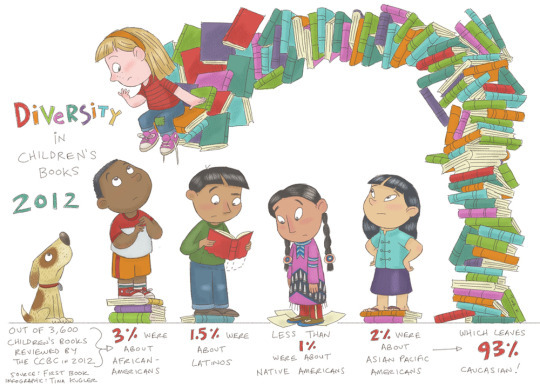
https://www.slj.com/story/an-updated-look-at-diversity-in-childrens-books
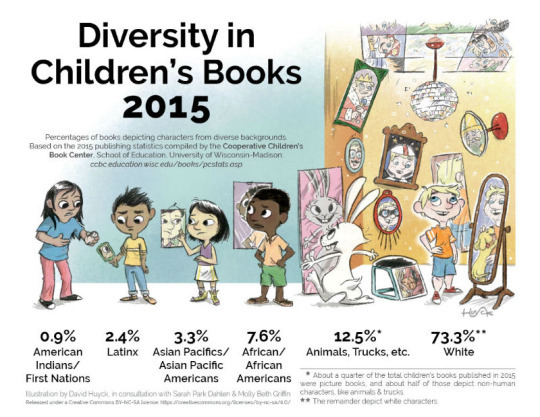
https://www.slj.com/story/an-updated-look-at-diversity-in-childrens-books
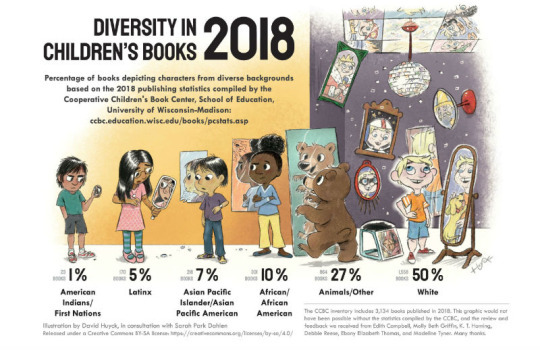
https://www.slj.com/story/an-updated-look-at-diversity-in-childrens-books
I've also seen general statistics, but those are harder to dig up, which has reported that nothing has changed, except, look, the really needy group who can't read gets representation, animals. While Librarians were BEGGING the industry to fix it, the industry took it as a sign to back away from race-related issues. That's what it looks like on our end. The ALA has our backs because every year they do a report on banned books and why they were banned highly discouraging it.
Women as readers, especially liberal (and more recently Black ones) are more likely to like diversity issues. Women make up mothers trying to change the next generation of boys so they don't end up as toxic men, they also fought for civil rights. And Black women were at the head of the LGBTQIA movement, several civil rights movements, etc.
So if authors/writers see these statistics plus Twitter's Publishing paid me, it feels like on our end, that trad publishing doesn't really care what readers want nor what writers want. They want to publish white straight abled books or bust despite the statistics, and agents are willing to cooperate with such notions by closing ranks and telling us, "That's what sells." But since the rise of the Self-publishing industry, the self-publishing industry is saying that's not true, so we, who pinned our hopes on distribution and help with international markets feel a disconnect. What's going on in traditional publishing that you're ignoring the market? And thus, this brings us to...
This Bad Week in Publishing
First, I have to state, if you take these names and try to harass, doxx, or otherwise do nasty things to them, I personally, will not condone it, and in general, it makes you a terrible, terrible human being when the focus is on the future and trying to make concentrated change rather than blame.
People hate change. Our job is to convince them we can do better.
I'll state this over and over again, the opening tweet wasn't about manuscript wishlists.

https://twitter.com/JayMoneWrites/status/1655351493724188673
The original tweet was asking agents to back off telling writers how to write stories:
For example (mine, not Jay's), you HAVE to use the 3-act conflict narrative or it's a BAD story. Wait, I've been doing studies on that and that's not true. Inciting incident is from a Jew (cries as a Jew) who seemingly is super racist. I'm sure the agent doesn't know that, and some PoC story structures are older in history (also the agent likely doesn't know that.) But this is problematic as it comes off accidentally racist and formulaic.
But then there was this bad take, which might be confusing the subthreads, but should have taken from the subthreads:

https://twitter.com/chronicles_of_n/status/1655562727417323525
The subthreads talked about mswls:
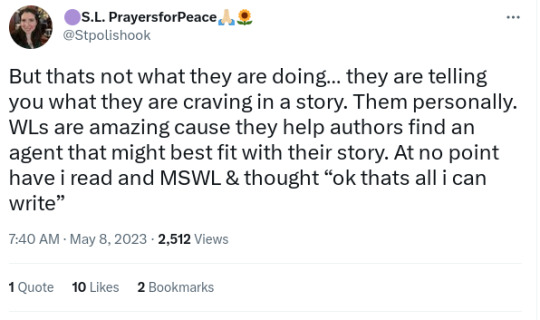
https://twitter.com/Stpolishook/status/1655583477885018120
I own I'm in this subthread, trying to argue that agents aren't "Helpless"
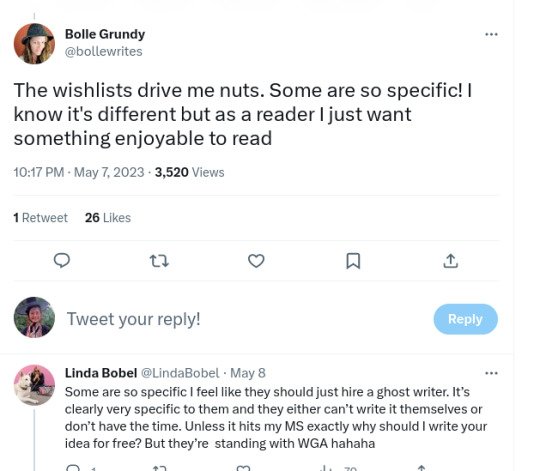
Subthreads also lamented agents asking for shorter and shorter page counts and more specific story structures:
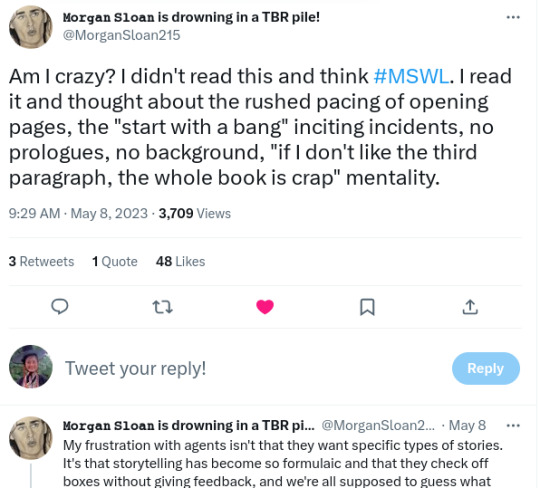
https://twitter.com/MorganSloan215/status/165561094842891469
Also a subthread on comps and setting trends:

I know agents could take this in 2 ways:
That's fair. I could see how this feels like a personal attack with the questions arising and no solutions presented. But no one paused to ask how much industry/knowledge experience any of these people have.
And this is what I see. People are asking a lot of whys, how does it impact the market, make us understand the market. Is what you're posting really driven by the market?
Agents took it the first way, not the second way, unfortunately.
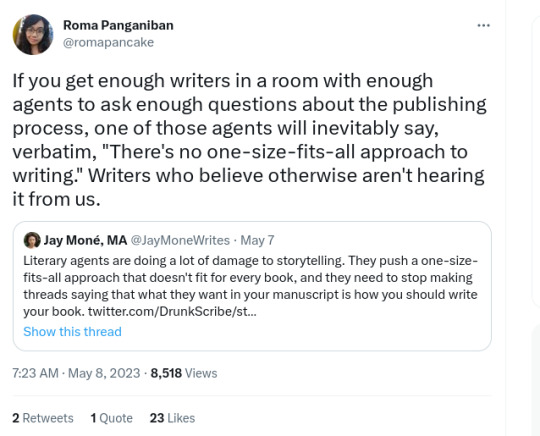
This is a general, not specific answer to the questions inherent above. Is it backed by marketing or not? How much do agents know?
It's saying "it's someone else's fault, not mine. I'm not going to help you with your quest."
Authors disliked this take because it seems like agents are as clueless as authors and we asked shop questions.
Also kinda feels like mswls are personal wishlists because the question wasn't answered: are you taking it from marketing info or not?
Another Agent said if you don't like trad publishing, self-publish:
https://twitter.com/ChelseaBigBang/status/1656069239168434184
I get there were hurt feelings. "And you all hate us, and you don't understand." But the very fact from our POV is we're trying to understand the justifications for it. So the people who want to trad publish, or were entertaining it, especially the diversity writers felt like the people in the list who liked the post were against us. Because the majority of the writers are from diverse backgrounds where "cookie cutter" plot arcs won't work to describe what we're trying to achieve.
Hurt feelings continued when an editor said this:

And writers asked for the same courtesy from agents that ghosted them, and agents vilified the writers. The frustration was reaching a boiling point, because the initial questions weren't being answered at all. Agents wanted something they weren't willing to give back.
Then this tweet happened:

https://twitter.com/SBLitAgent/status/1656429611645906945
This made people really mad and I think some of the anger was unjustified because it was misdirected, but if you have a really important series of questions about the market you want a career in, you want to understand, and someone says, "Well, I make a living from it and you don't. I could be rich doing this, and I really don't care about books. and we know better than you and we're not sharing our information. Live with it." How would you feel? But you asked a valid series of questions about how decisions are made in the industry and you want to innovate diversity stories on top of it. Are they justifying it with market numbers or not?
And really, agents closed ranks, rather than saying that's not cool, which sent writers into another tailspin. Do they not care about us anymore? Why won't they call out this bad behavior and say they will protect us? Why not disavow this agent who says we're just a paycheck? I thought we were in this together. We get you have to work together, but do you really want to close ranks for an agency that says:"if it's too difficult for grown-ups, write for children"
https://ktliterary.com/
(Which isn't a call out, it's more like why support this agency saying this about authors?)
Bigolas Dickloas
https://www.insider.com/bigolas-dickolas-wolfwood-trigun-interview-time-war-2023-5
proved some of the adages and the writer's asks as true from our PoV. We can't sell the books on our own. We need other people to support us to get there. And that it's not the length of the beginning pages, as asserted, or the structure, but readers enjoying books and recommending them.
Bigolas Dickolas is a what? Anime fan. And a lot of anime is what? Kishotenketsu. Do agents know that?
So there was celebration that this could be done. At the same time frustration because look, huge fan of anime, and you won't let us have the freedom to tap into the different like anime.
The cover thing...
The cover debacle.
From a pure writer's perspective: So you don't want even spent money to make copyrightable covers anymore? Why are we going for traditional publishing?
I should note that most writers have no hand in their covers. Don't chase down, discuss, think about it.
There is nothing more delightful to a new author than showing off their unique cover that shows what their characters looks like and all foriegn iterations. Many authors are also artists. And we, too, dream of crying, literally tears down or faces at seeing the achingly beautiful covers of our books. And supporting our fellow artists. Because solidarity all the way.
From a personal graphic designer's perspective, we work so hard to make covers and images for you. I used to cry in utter delight at Michael Whelan covers. And daydream about having a cover by him. There's other covers that you can hate the book for, but can't imagine a different cover for it and spend hours admiring the graphics design. As a graphic designer, I'd want that for authors. I'd want them to cry and slowly understand why a cover is the way it is--I mean I made a whole post about covers.
So imagine our disappointment at seeing this is a thing. And you realize you can't copyright an AI image, which puts the cover into a precarious position.
What writers see about Agents
Early in the internet, there were blogs, such as Miss Snark, and others which helped with contracts, how to send a query letter, what's good and Bad, Janet Reid, and agents talking about the business side--that really helped writers and there were long threads about how to approach publishing after Nanowrimo and on other forums, such as Absolute Write.But we don't see that... writers are clueless on how to read contracts, and agents are leaving us high and dry sometimes. Because that's useful info for writers to know. Are there particular weasel clauses we should think about these days? Match this dearth with the attitude above where you're supposed to care about us for more than a paycheck, and how do you think we feel? We pin our hopes and dreams on publishing because we love it, we struggle to try to understand the business to make ourselves attractive, but the backstab is deep when you won't talk about the industry and numbers with us. There's a disconnect.
Miss Snark used to say, hit me with your most creative, no matter what and I'll do my best. She liked to say, "Knock my socks off."
She also said, (between her poodle) that her colleagues would get on her case for doing it, and share how hard it was being an agent, because she'd have to read manuscripts on the way to work. We see your struggles, too, but with the above tweets, the question was, do you understand ours? How much are you willing to help us to the finish line? We know how it works.
Some internet troll is going to misconstrue this as a way to hunt down agents... but she's a fictional agent and retired, so...
We want you to sell and sell hard, but also sho off your selling prowess and innovate the industry. Our books don't have a market. We know that, that's why we're asking you to be our partners--agents editors, and publishers to help us prove we can innovate it. You don't have to be alone.
Demographics of writers
For diversity writers what we were promised from the age we thought, "Hey, I'd like to be published" is, "Ah, this will be an industry that doesn't judge me for things I can't control and we can create empathy for people like me together." And then there is a big shiny sign that says, "Hey, kid, I believe this too. Let's work on this together."
This is the greatest power of books that we were promised from a young age. If we grew up around "We Need Diverse books" then we pinned our deepest hopes on this. We could revolutionize the industry if we understood it deeply enough and worked hard enough to become better writers.
We were told to red everything and consume as wide as ossible, over and over again, but we don't know and can't put our faith in that industry pros are doing the same. I know this sounds like an accusation--it isn't. We just want to talk about what you do and don't know so we can share the info and help each other out.
The writer demographics match the reader demographics by and large, and as avid readers, we also want to reach the same market as the industry pros. We also know the market and are trying to reach it. It's not only, OMG, hobby, let's publish. Some of us try to keep faith while the industry says they hate us. Because we dream of social change towards us and people like us.
The reader demographics tend to match the writer demographics: I ran the survey for 5 years and cross referenced it with Pew research center in my time I'm struggling to find their older studies). So there is more frustration when there are more and more diversity writers around, from our PoV (taking out the internet self-selecting), and still no change in books.
So imagine people like that hearing that too bad, we're not going to share marketing information with you? How would you feel?
Yes, angry, disappointed, but I thought you were on our side~ Why can't you answer our questions? And to be told too bad, you're whining... we make the rules... what does it look like? Can we move forward or not?
By and large, the majority of PoC and diversity writers are POOR and need the support of big publishing to cover the upfront costs. The people who have the spare cash to do self-publishing--pay for editors, reviewers, covers, ISBNs, etc. And we see the market for our books, but trad publishing is still chasing after that elusive white cishet abled NT male.
The FAQ writers have:
- Marketing numbers to back up the requests from agents/editors.
Can we also see them? Why close ranks and say they are industry secrets?
- Is the 10 page count justified by statistics? If so can we see them? Or if it is convenience?
Convenience for the agent or are there market forces at work?
- "It's what sells," what are the numbers to back this up?
- Can we have a conversation about innovating the market, making trends and comps? And if we can go back to elevator pitches?
- Why often pitches and asks for them in public don't result in the agent getting back to us.
- Are there marketing numbers to back mswls, and specific requests? Can we SEE them? Are they whims, or really backed by the market? Can you back it up and SHOW us why you think so? Or was it because it occurred to you over morning coffee and you want to read the book, but not write it? Was it an editor? Writers are hungry to learn about the industry too. Contract help, for example.
- But sometimes the hyper specific mswls and saying and declaring "Trauma doesn't sell" when it was a specific request doesn't feel like it's coming from marketing advice since we have Encanto, Everything Everywhere all at Once, and Turning Red. (I'd mention authors, but I don't want to give them heat.)
- Can you also post more about contracts, loosely. Agents used to boast about particular weasel clauses and how they got a 5% boost on a sale because of X thing. We like that. We love that.
- You know that the paper catalogue back in the day just said genre, send it. Because you have about 30 words to cram into it. But now there are thousands of ways you want to send the manuscript with no clear set rules and it drives even the most neurotypical person into a panic attack as they try to look for the nearest crystal ball. It used to be uniform. Can we get set guidelines similar to what I posted and TALK about it?
The disappointment sometimes turned into disgust as agents didn't talk about it to protect their own, but how would you feel if you've pinned your hopes and dreams your entire life on the joy of books we thought you shared to find out that you won't and can't fight with us and even like the post and appear to feel the same by liking the post saying you're our source of cash? (Especially when those agents claim to be on our side in the diversity struggle and they share the same diversity too.)
We, who wanted to be published with you, are working hard to understand this industry too, so why lock us out like we're less than and not intelligent enough to understand the intricacies. Why can't you talk about it instead of taking it as a personal insult? That's the question rattling around. We wanted to talk shop with you.
- Why do the publishing statistics not match the readership?
- What do you mean by "What sells?" Can you justify it with some market information? It feels terrible when you won't tell us why. Can't we share marketing info?
- We thought that one had to either set a trend--in which case edgy books or be ahead of a trend, rather than follow it--writers are confused on this front. We were told explicitly to not follow trends because by the time we do, they'll be gone. Sometimes it takes a year to write a book. So by the time you see it, it might have been around for 2 years at minimum. Diversity books take longer and we all know it.
- Writers would like more uniform or at least clear submissions guidelines which can be found here: https://www.tumblr.com/kimyoonmiauthor/685983497588965376/how-literary-agents-can-help-neurodiverse-people?source=share
BTW, if you have objections, voicing them in a professional way would help me refine the list. I worked with an agent and several writers for that list, and it would be good for everyone.
- We have questions about trauma representation that have gone unanswered by industry pros and often when we ask them we get blocked?
Diversity writers have questions about the same things in publishing. Can we discuss it?
Some of the ones I've seen are why agents are against covid, but want diversity trauma so much, and why can't you ask for nuanced takes and diversity joy? And then follow through? We notice when you don't get a new client after asking for a specific diversity client.
- We have questions about all these quotas we hear about.
"We have a Jewish writer, we don't need more" "We have an X, we don't need you.".
So are our manuscripts being assessed on merit, or by filling a quota, where the rest of the quota is filled by people who don't have diversity to hit phantom numbers like 50-50 male/female though the writer's population matches the reader's population.
- Also foreign markets and the US markets aren't the same, yes, but why are they jumping so drastically forwards, and we aren't? Can you talk shop with us about it?
- Can you allow more diversity of story structures and ways to write a story?
From our end we see things like anime fans talking avidly about their favorite anime, which uses kishotenketsu and jo-ha-kyu, and Korean drama fans who like shows that don't use 3-act structures and do things like Dream record with high viewership. We see things like Bollywood do a complete 180 in 10 years and then look at the West African market in books and television and find they are playing so hard with story and we want in--especially as own voices. We see Encanto take off and do well. We want to tap that market too, and please our domestic readership and international.
In our bones, we know braided narratives so well, that even if they don't have a name in our heads, we produce them anyway...
and we're told: It's not marketable.
https://www.kimyoonmiauthor.com/post/641948278831874048/worldwide-story-structures
But Everything Everywhere All at Once was publicly called a kishotenketsu (Though I felt it matched more closely beat for beat with qichengzhuanhe--I suppose one could debate that), and people were explained it and felt it in their hearts. And Encanto was a Braided narrative with different parts coming together. And there are motifs that our core fanship would recognize, say the old man that is an herbalist from Chinese tales, with zany ideas who helps the hero/heroine out of a lurch (like falling off a cliff and not getting that broken.)
I get it, though, it feels like a huge risk to be able to invite more structures and more story types, but they managed it in the early 19th century with ONLY US-invented story structures. People won't be that confused. What it feels like to writers is that you're not giving us a chance to really dazzle you and show off our understanding of the readership. But we were hoping you, too, loved the media that was prevalent to us when we were growing up and you also wanted change.
We want to be able to tell you a story about being disabled from an own voices POV, and rock your world with how it feels such that it blows the stereotypes out of the water and nuances it so deeply because it's not really about the disability in the end, you walk away from the book stumbling. Don't you want that too?
We want to share our joys, sorrows and let our creativity soar and meet the market *we* see and work on this problem together, so can you see our confusion? Transparency will help with that. Show us the marketing justifications.
Writers also pay attention to markets and passions too. We aren't ignorant to whims, we try our hardest to be plugged in, because it's also our necks on the line, our names on the book, and we aim to do well for the readership, ultimately. We are hoping you are hoping to do the same. We have customers to serve.
I know these asks seem like "You hate all agents" No... that's not the point. We want to understand and talk shop.
Actions to do together
If you want diverse clients, we won't hire you if you sell these.
PoCs also largely have solidarity with each other, so you have a PR issue if you betray one group, because the other groups won't trust you either. Also, why. Also, we appreciate agents that condemn it and say no.
Do everything in this list to set some industry standards and encourage your collegues to do the same: How literary agents can help Neurodiverse People (and everyone) query If you have questions ASK. I like feedback, it's my job. If you don't want it to be public, tag, me let me know, you can use the tumblr ask function and be anonymous and ask me not to post.
Agents that implemented it did it in less than 24 hours. If you are busy, maybe a week, but it's not hard asks.
Worldwide Story structures If you're not educated, then we can help.
Transparency and communication
On our end, we can work to prove the numbers you have maybe are wrong and there is more support for the movement than you think. That you won't have an epic fail if a Japanese own voices author uses Kishotenketsu in their story structure. That someone from Nigeria might have a different understanding of story and it won't fail. Show us the path and what numbers we need to meet and beat to show it won't fail if you're open and honest with us.
There's marketing discussions to be had on this. Maybe we can help work together on a better marketing plan. We can't help you, if you don't communicate with us about what you see and don't stop saying we know better than you. OK, spill, share. Give us the info we need to understand without saying you're superior. We all started somewhere--you did too, you weren't in the womb knowing how to publish a books and the market. Give us the leeway to learn and we'll do our best to also cast out people who aren't there for a friendly conversation and asking about how to work on it together.
https://www.tumblr.com/kimyoonmiauthor/685983497588965376/how-literary-agents-can-help-neurodiverse-people?source=share
Conclusion:
Communication, honesty and transparency are minimum risk. If we work together to make it happen, I think it will. I know that people promote the conflict narrative and individualism in publishing stories--though as I outlined, I think it's more nuanced, but people LOVE stories of cooperation too. And I think we could achieve it if agents, editors, publishers (the people, again), and the writers work together to achieve goals to meet the market.
Remember, a lot of us pinned our hopes on the love of books and stories, some from the age of 2 or 3, and some from the age of a teenager. We want to fight with you to make this the best industry around and kick other country's butts so we look like the most innovative on the block--are you willing to join us?
#agents#publishing#state of publishing#diversity#diversity in fiction#Diversity movement#editors#publishing pros#queries#mswls
13 notes
·
View notes
Text
It wouldn’t be historically accurate for my story to include BIPOC!
This is an argument often made about European-style fantasy media like Game of Thrones, Lord of the Rings, and Disney’s Frozen. Audiences, often white, assume that due to the majority-white setting, adding any visible number of BIPOC to the story would be unrealistic.
What these critics fail to realize is that BIPOC do in fact live, and have lived, in these settings, and records of BIPOC presence in places assumed to be majority-white have been buried, written out, or not taught due to white supremacist and/or colonial bias in the field of history. There are historical European settings that were far more diverse than is often portrayed. Consider:
The Moorish Empire exerted an extensive influence over life and culture in Southern Europe from Spain from 711 to 1492
The Ottomans were heavily involved in European affairs up until the treaty of Karlowitz in 1699, but still considered a part of Europe even through the 19th century
The sheer size of the Roman Empire ensured the continued movement of people from various backgrounds within the Mediterranean well until the end of the Byzantine Empire.
“Historical accuracy” should not be used as an excuse for media to be exclusively white in its casting. While there are places which are or were predominantly white, there will always be factors like global trade and immigration that bring multiculturalism to their doors.
And even if the presence of a certain demographic is unrealistic for a certain setting? Consider that we’ve accepted far worse inaccuracies in historical fiction in the name of artistic license. Consider that our understanding of human history is, and will always be, incomplete.
Further Reading:
Historically Diverse London, “Historical Accuracy,” and Creator Accountability
Making a Black Pride and Prejudice Resonate
---
This Q&A is an excerpt from our General FAQ for Newcomers, which can be found in our new Masterpost of rules and FAQs. If you're new to Writing With Color and/or want more writing resources, check it out!
-Writing With Color
#writing with color#writeblr#representation#poc representation#history#historical fiction#historical accuracy#writing advice#writing tips#writers on tumblr#diverse books#diversity matters#faq
3K notes
·
View notes
Text
once you notice how few characters in media have brown eyes it really becomes impossible to not pay attention to it and its been bothering me ever since
#ganondoodles talks#i now its not that there are literally zero#but it almost is#and i get giving fictional characters non natural eye colors is fun#but blue and green is still everywhere evne tho those are also real#like sometimes it feels like brown is actively avoided#going for red or yellow instead#and i know in anime especialyl theres this idea i think that similar to hair color its bcs the majority of japanese people have those#so it feels 'more special' if its anything but that#idk how much of that is true#also its not just anime#feels weird#brown is such a diverse and beautiful color#makes me sad
444 notes
·
View notes
Text
On Diversifying Ineffectual Sympathetic Villains
I love me a good Ineffectual Sympathetic Villain, but they do tend to be white guys, don’t they? And when they aren’t, such as with Tae-jun in Yona of the Dawn, it tends to be a story where there are no white people. I want to poke at that. This is going to be a post with more questions than answers, and I want to stress that diverse heroes probably has priority for reasons that I’ll get into.
Here's an explanation of what an Ineffectual Sympathetic Villain is.
The biggest challenge with diversifying the collection of Ineffectual Sympathetic Villains is that they’re a character archetype defined by incompetence, brokenness, and an outlook on life that’s straight up wrong/toxic/limiting. And if you look at the stereotypes out there, well, being “less than white men” is a common feature. This is why diversity of heroes tends to get preference.
And yet, fans love a broken white guy.
But, of course, that comes to the second challenge: bigoted fans are less sympathetic to characters that aren’t white men. And I don’t know how to fix that.
But I do have a partial solution to the first problem. And that’s to ensure that the Ineffectual Sympathetic Villain isn’t the only Black character or the only female character or what have you in the story - and that the others aren’t Ineffectual Sympathetic Villains. No one would consider Tae-jun to be “bad Korean rep” because all the main characters are also Korean.
I’ve played around with this in one of my fan fictions, but I think I’ll take a stab at it in one of my stories. I’m thinking my Hammock Kingdoms series, as it’s an ongoing series. Ineffectual Sympathetic Villains benefit from longer canons as opposed to shorter ones.
0 notes
Text

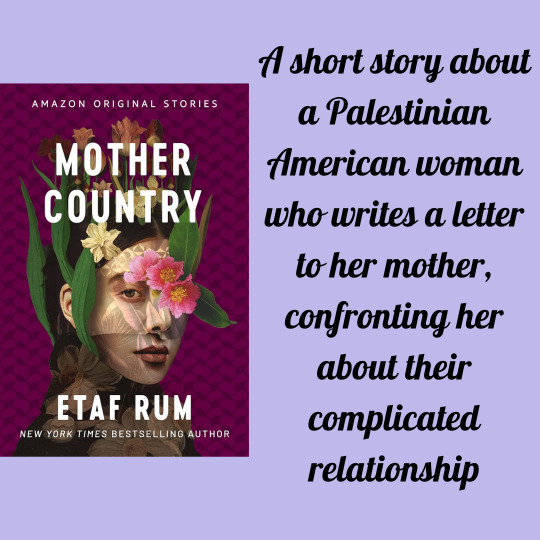

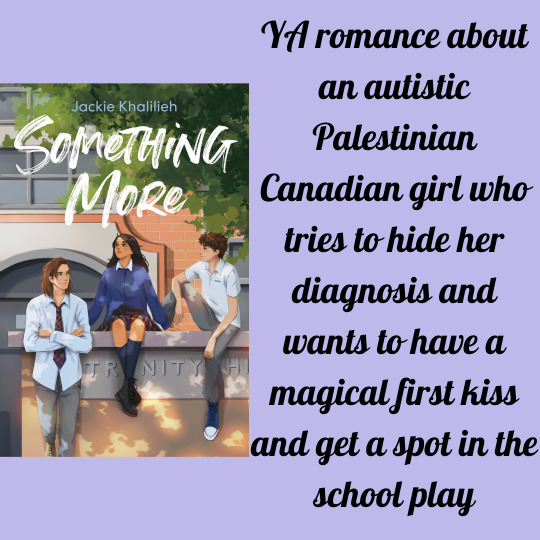
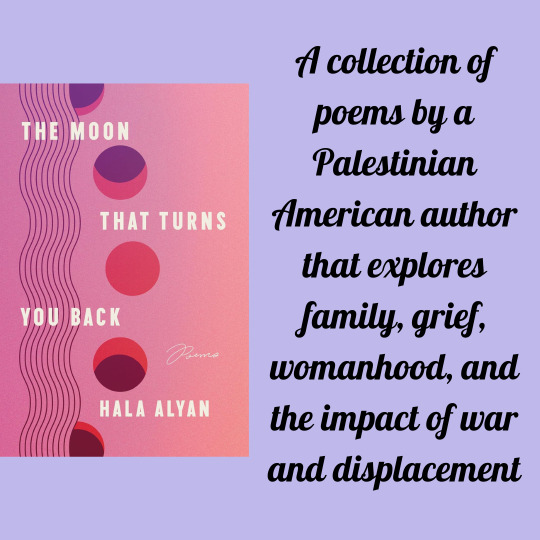
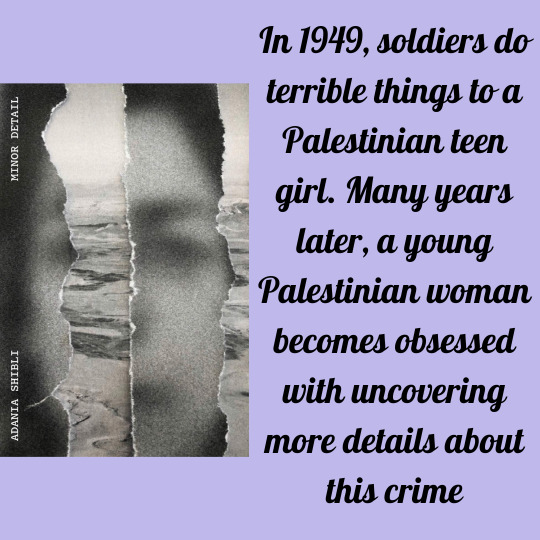
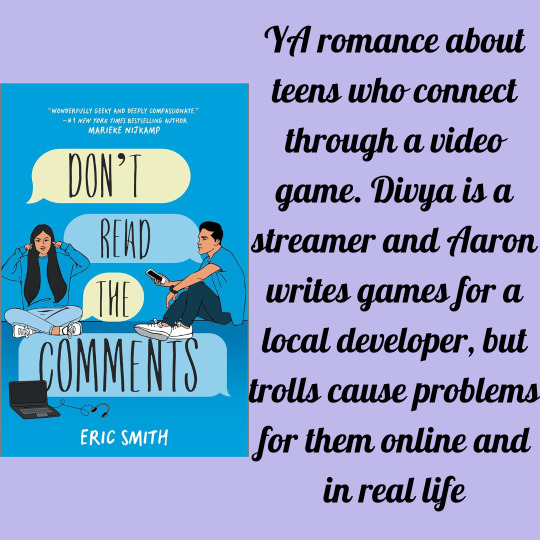
Here are some fiction books by Palestinian authors about Palestinian characters that I've read and enjoyed!
Whether it's about living under the occupation or teenage diaspora falling in love, it's important to support Palestinian authors and read their stories, especially as attempts at censorship increase
Let me know if you have any recs for me to add to my tbr!
166 notes
·
View notes
Text
Announcing the Amare Games Festival 2024
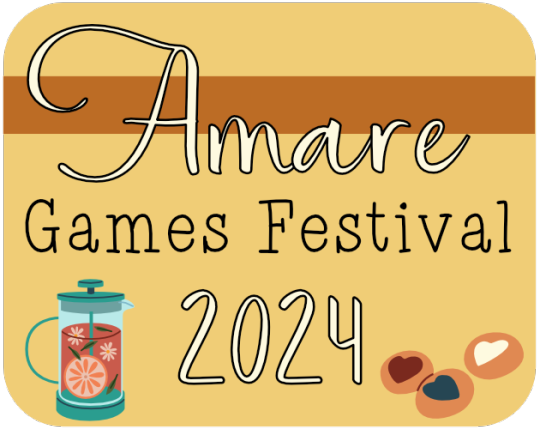
Amare Games Festival 2024
Join us in April for the 2024 Amare Games Festival, a celebration of love and diversity in story-focused games!
For this festival we invite you to create or update a game that you believe falls under the Amare Genre tag!
What is Amare?

Why a festival?
Jams are an awesome way to get the creative juices flowing and challenge yourself to create a game in a short amount of time. However, there are already a lot of amazing projects in progress, so it's important to celebrate those and give people the opportunity to focus on setting and achieving goals with their existing projects as well.
Examples of Submissions
A new game.
A new demo or Vertical slice.
A new chapter update to an existing game.
Adding new features or content to an existing game.
The festival has fairly relaxed rules, but in general, we would like all participants to keep these in mind:
Rules:
You must Release or Update during the festival period. Work can be commenced before the start of the festival.
Please clearly label demos or first episodes as such. - This is to help us organise the entries
Please clearly state the exact update or new content that was added during the festival.
Submissions can be Free or Commercial.
NSFW must be properly labelled, but is fine as long as it adheres to Itch.io's TOS
No hate speech, (i.e. speech that promotes hatred, violence or discrimination against groups of people based on ethnicity, religion, gender, age, disability or sexual orientation.) or content that is patently offensive or intended to shock or disgust viewers.
Content Warnings are needed (Here is a link to help you with those if you need it!)
We currently do not support AI-generated games or games that make use of generative AI writing and art. Until legislation is put in place to ensure ethical training models that respect artist and creator copyright and regulate transparency on the use of AI in creative content, we will not allow the submission of games that utilise generative AI.
We kindly ask that you tag your game with the 'Amare' tag here on itch.io. This will ensure people who are watching the tag instead of just the jam page will see your game.
Join the discord to find others who are looking for festival partners, and to talk with other Amare Devs!
Sign up for the Festival on the Amare Games Festival Itch Page.
#Amare Games festival#Amare Game#Otome Game#Diverse Games#LGBTQA+ Games#Visual Novel#interactive fiction#text-based game#Romance Game#Game Jam#indie dev#Amare#Otome#indie game
137 notes
·
View notes
Text

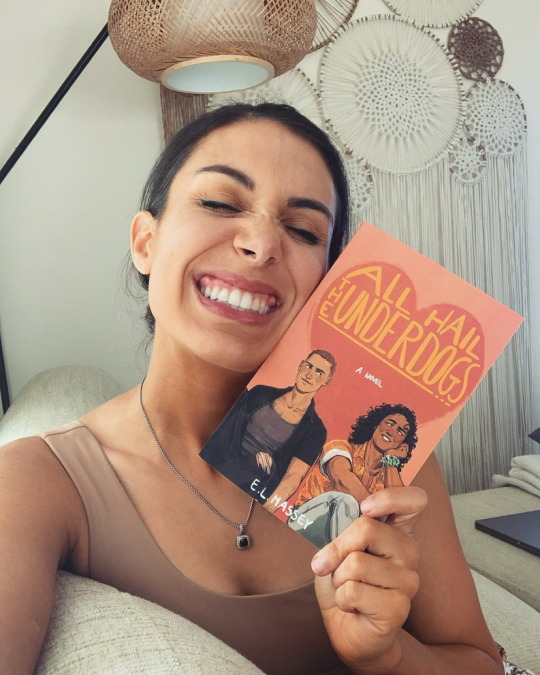
It’s giveaway time!
I have 2 signed/personalized copies of All Hail the Underdogs up for grabs (shipped to you for free if you’re in the US). You have 2 ways to enter:
1. Like + Reblog this post
2. Make your own post rec'ing one of my books (or fic, if you'd rather) and tag me in it.
Or do both for 2 entries. The contest closes and I'll announce winners on Friday the 6th.
There's another contest happening on Instagram as well if you want to improve your chances of getting one!
Also! I ended up having to order more author copies of AHTU since I oversold the first 100 I offered. If you just want to pay ($20 w/shipping) for a signed/personalized one, you can email me at [email protected].
Ok, ok. Here’s the blurb so any unfamiliar folks can be enticed into buying it:
When seventeen-year-old Patrick Roman is offered a scholarship to a top hockey preparatory school, he thinks maybe his notorious bad luck has finally ended. With a hearing for his legal emancipation on the horizon, he dreams of getting scouted and securing a place on a D1 college team. There’s only one problem: Roman has serious beef with his new winger on the team, Damien Bordeaux. They’re supposed to be perfectly in sync on the ice. But Roman, with his buzzcut and tattoos, has nothing in common with trust-fund-kid Damien, his floral scrunchies, and designer T-shirts that cost more than all of Roman’s secondhand hockey gear combined.
When eighteen-year-old Damien Bordeaux starts his senior year, he tells himself he’s going to focus on hockey and school. No more making out in the stacks, no more dorm parties. He needs to decide what his future will look like. Does he pursue his long-held dream of becoming an author? Or stay in his lane and do what he’s good at: hockey. Regardless, he’s not going to let any pretty boys distract him from figuring his shit out. Except his new center, Roman, is possibly the most beautiful boy Damien has ever seen. And his hockey—the way he moves on the ice—might be even more beautiful. Too bad he’s also probably a homophobic, racist asshole.
But their antagonistic beginning turns into an unlikely friendship and then turns into something much scarier for them both. Navigating relationships is hard enough for normal teenagers. It’s a lot harder when contending with lawyers, NHL scouts, and mutual past trauma. Roman and Damien have to decide: What do they really want in life? Are they willing to fight for each other—including fighting against their own pasts and prejudices—so they can have a happy ending?
#mylife#myface#author things#all hail the underdogs#ahtu#lrpd adjacent#ya fiction#queer reads#diversity reads
157 notes
·
View notes
Text
Why the "Regency Era" is a fantasy realm
I've seen some interesting discussions back and forth about making historical fiction and particularly historical romance more inclusive, and I do think that there's some merit to the argument that merely inserting BIPOC as part of the ruling class erases many of the historic struggles people went through in terms of both class and race.
However, there's something that people don't seem to realize when it comes to the Regency Era: it's a fantasy realm that was primarily created by a single author.
Just as J.R.R. Tolkien published his Lord of the Rings books and created a world that would loom over the fantasy genre for decades to come, Georgette Heyer created the Regency Era in a way that I think people looking at the romance genre from the outside don't really understand.
Heyer wrote several historical romances and mystery novels prior to 1935, but it was with Regency Buck that she introduced her version of the Regency Era, a version that has actually been far more influential in popular culture than that of Jane Austen. (Most of the Austen adaptations pull more from Heyer than people realize, especially in terms of manners.) Heyer's world is all polite society heroes with a stiff upper lip and perhaps a tinge of rakishness, spirited yet virginal heroines, and a cast of supporting characters that range from younger brothers to elderly aunts.
There are very few hints that anyone outside the aristocracy is of any consequence, or even knows how to behave themselves, even when the middle-class daughter of a rich "Cit" marries an impoverished aristocrat in A Civil Contract. Sex exists, but only behind firmly closed doors and, for the heroines, only after marriage.
And what about the minorities that we know lived in Great Britain during the Regency Era? Not just the racial minorities that included Black citizens and former slaves as well as Indian immigrants, but also religious minorities? They pretty much don't exist in Heyer's world, apart from a few anti-Semitic stereotypes of rapacious Jewish moneylenders that make modern readers cringe when they stumble across an unbowdlerized edition. There are a few jokes and whispers about "unmanly" men, but that's about it for LGBTQIA+ representation as well.
Given what we now know about the Regency Era -- and we know a lot more than Heyer did when she was writing almost a hundred years ago -- we know that her view of Regency society was as artificial as Tolkien's world. Despite her use of historical sources, her romance novels are set in a fantasy world that melds the fashions and historical events of the Regency with the Victorian morals and mores that Heyer herself was raised with. The Regency Era was the late Georgian Era and was far more vulgar and free-wheeling than Heyer was willing to admit. She left out the people who didn't fit into her vision of the Regency, which showed an Anglo-Saxon ruling class that deserved to rule because of their natural superiority.
So my opinion about TV shows and films like Bridgerton and Mr. Malcolm's List that show an inclusive aristocracy in the Regency Era is ... well, it's all fantasy anyway, isn't it? Why not make the fantasy inclusive since the whole era is Heyer's illusion dressed up with a few historical details?
And if you want to try and argue that Heyer was historically accurate about everything, be prepared: I have sources that Heyer either ignored or did not have available to her. Look up Benjamin Silliman's 1803 journal of his trip to Great Britain sometime.
#mr malcolm’s list#historical romance#regency romance#historical romantic fiction#romance genre#diverse romance#bridgerton#georgette heyer
1K notes
·
View notes
Text
I will do my best but at the end of the day "good representation" is always going to be secondary to my quest to create the most specific Little Guys in the world sorry
#esp with regards to alt world fiction like sorry my characters' lived experiences wouldn't map 1:1 with a real person from the 21st century#and also! everyone that is alive right now is also the Most Specific Guy in the world and there is no one magic way to portray a trait#or identity and have it resonate with everyone who is/has that irl!!!#and sometimes I get very tired. I want my characters to be diverse because I want to write about people#and people are diverse#I am not trying to be anyone's spokesperson! especially for groups I am not a part of!#I don't want to be tempted to strip my characters of ''diverse'' traits so some hypothetical person won't be mad at me!#anyway please interpret this post in the way that will make you the least mad at me. that's what I meant. thank you
26 notes
·
View notes
Text
I'm teaching a Workshop about Story Structure...
The contents of what I'm basically talking about are there, if you're interested.
I'll be adding things like How to beat AI... ('cause I had fun doing it myself.) I won't teach how to write a particular story structure, because that takes a whole lots more work, but I will cover a huge geographical range by trying to get at the heart of what story structure is without being an ethnocentric a-hole. And yes, there will be some European Story structures...
2 notes
·
View notes
Text
Solarpunk and Religious Diversity
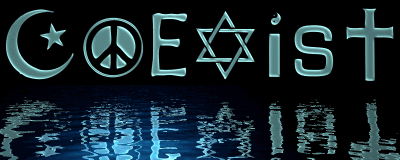
Okay, let me talk about the probably most contentious issue about diversity in the Solarpunk space: Religion.
So far I have again and again noticed, how a lot of Solarpunks tend to be very anti-religion, only maybe making an exception for spiritual religions like Shinto (often without even understanding, what Shinto actually entails).
Reason of this is partly the awareness, no doubt, of religion again and again being used to suppress minorities. Both Christianity and Islam are fairly well known for how they suppress both women and queer folks - and of course in the past religion has been used for example to justify slavery and other attrocities.
As someone, who has been active in atheistic circles for a couple of years in his early 20s, I am very well aware of the usual "You cannot choose your sexuality, but you can choose your religion" argumentation going on. Which is of course... wrong
Now, obviously nobody chooses their sexuality, but.. most people do not choose their religion either. Not only that most people are in fact raised within their religion, but... I know a lot of SciFi folks hate to hear this, but we are actually not really this reasonable, rational species, you know? Our brains are made for pattern recognition. Our brains are, in fact, kinda made for seeing intent, where there is none. And because of this... we are religious.
And let me make one thing clear: A lot of self-proclaimed atheists still believe in a lot of patterns, that are not there. A big eample is the "invisible hand of the free market".
So, no, people do not choose their religion. They either are raised within a religion or find a religion, that is especially good at making their brain go "brrz!". Do you really believe people would follow a religion in a country, where that religion is outlawed under the panelty of death, if it was their free choice? Probably not.
And it is because of that, that we just gotta learn to arrange ourselves with the religions. Instead of hating all of Christianity or Islam because there are those that use those religions for hate, hate those people, not the religion.
Atheism and "science" (that is not really science) has been used for hate, too. Just look at Sam Harris and Richard Dawkins and how they act about transgender people. Heck, most queer folks and women and otherwise marginalized folks like me, left the atheist sphere because it was so hateful towards us.
So, no. It is not the religion that makes the people hateful. Rather hateful people will use religion to propagate their hate towards more people.
Discrimating against religious people, will not stop discrimination against other groups. Most religions actually do have a rather solid moral framework. Of helping others and especially the poor, about protecting nature and so on. So rather build on that, than expecting people to not follow their religion anymore.
And for those, who think Shinto is so amazing: Be aware that for a long, long time human sacrifice happened as part of Shinto.
And I like the Shinto religion. But... I do not overidealize it. Like all religious frameworks, it has its flaws and has been used to justify bad things.
So just... be accepting. At least of those who want to use their religion for good.
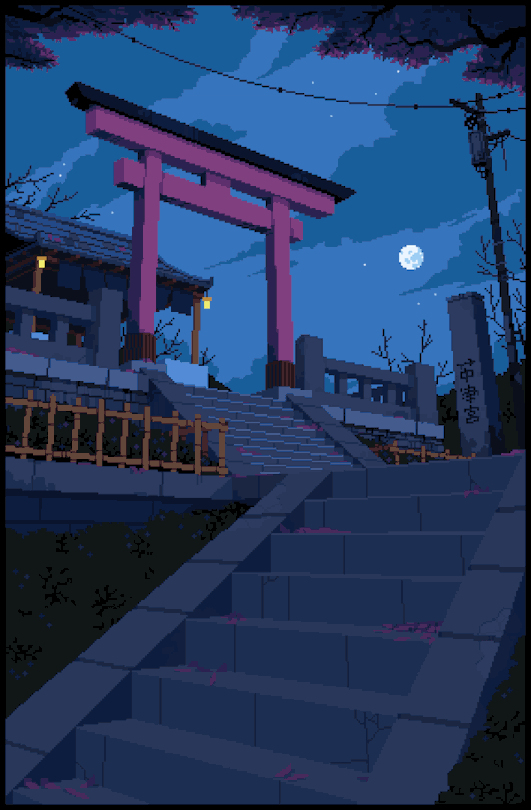
106 notes
·
View notes
Note
I just finished your demo and i absolutely love it! The character customization is amazing as well. It’s implemented through out the story as i read along.
Another thing i’m happy for is the amount of Black/POC characters that are ROs or not. Interactive fiction is a very niche genre and most writers don’t include black characters as much. Kinda makes me feel isolated from the story and feel less immersed into the story. But i don’t have a problem with this one, Which I’m grateful for. 😊
Ah thank you! It's such a relief that it's coming across well. I love when character customization matters, but writing this has made me appreciate the work that goes into it even more.
And thank you for loving my characters! I wanted the story to feel vibrant and diverse in a believable and natural way that many parts of the world are. As I've said before, I love the fantasy genre, but the world is too wide for us to just draw on one cultural influence for our worldbuilding. Plus I know the isolating feeling that comes with consuming media where you're clearly either an outlier or an afterthought. So it makes me so happy that my black and poc characters are getting some love!
#interactive fiction#honor amongst thieves#if wip#game development#interactive novel#worldbuilding#hat if#such kind readers#diversity in media
33 notes
·
View notes
Text
I am on some bullshit right now, bruh
#just re-watched pocahontas for the first time in many many years and dawg#the character animation in that film is so gorgeous#like they went so hard on ACTING through the animation#im getting obsessed again like i was when i was little#like u gotta understand: the disney pocahontas character (a truly fictional character inspired by real events let's get that straight)#i was like in love with her. i wanted to be her like oh my god#and the way they animated john smith was such a departure from their other disney LI's up til then (as *i* recall)#so detailed!! the expressions!!! the fucking YEARNING!!!!!!#best love story out of all the disney flicks imho. as a Story it's so powerful#I'm gonna think about the symbolism of them having to part#after grandmother willow had told them 'only when the fighting stops can you be together'#implying that the fighting isn't over and probably never will be#fuxking painfuslfjk#i know i know: c'est ~~problématique~~#but look. I'm from a racially diverse family okay?#my dad's side especially. nobody over there stuck to their own race/ethnic group#my parents are a mixed couple. i know how hard it is to make that work.#most interracial couples I'd seen on tv until that point were very...chaste?#mostly played for laughs (oh haha the cultural dissonance is so cute and funny!) or worse: to play up racial sterotypes#but to see one depicted as a straight-forward romance- as two people deeply in love and not played for a gag? AND as the core of the story?#mannnn that means a lot to me even all these years later#so yeah im deep in the 'hunting down feel-good fix-it fics' phase wish me luck
24 notes
·
View notes
Text
Amare Fortnightly Bulletin 1/04/24 - 15/04/24
Hi everyone!
Issue #14 of the news bulletin is out now,
We had a bunch of VN news this fortnight which is exciting so make sure to check those out.
Be sure to check it out for several new Kickstarter campaigns too!
Big thank you to everyone who has been checking out the bulletin each fortnight and a warm welcome to new readers.
~Amare News Team
Itch Link for Issue 14 Download -https://amaregames.itch.io/amare-new-bulletin-2024/devlog/715708/issue-14-released-apr-1-apr-15
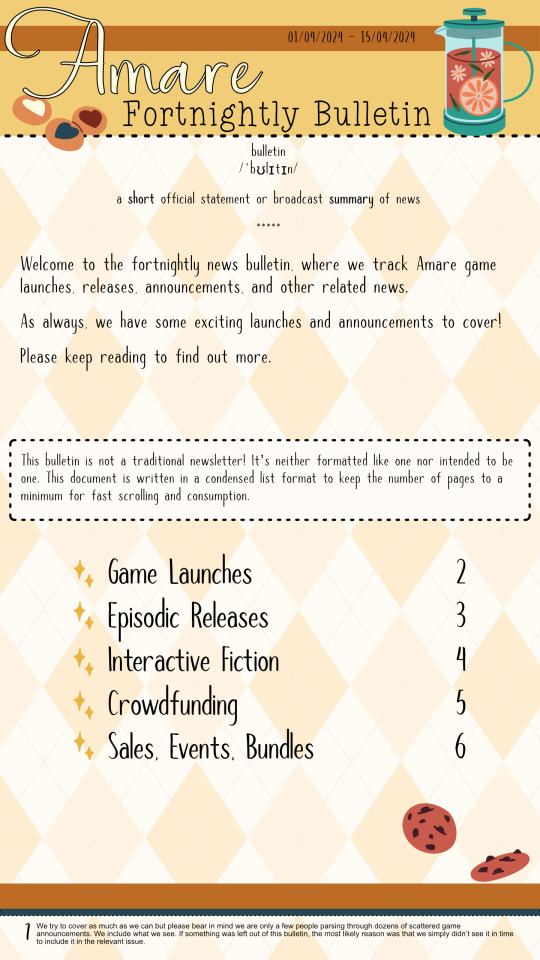

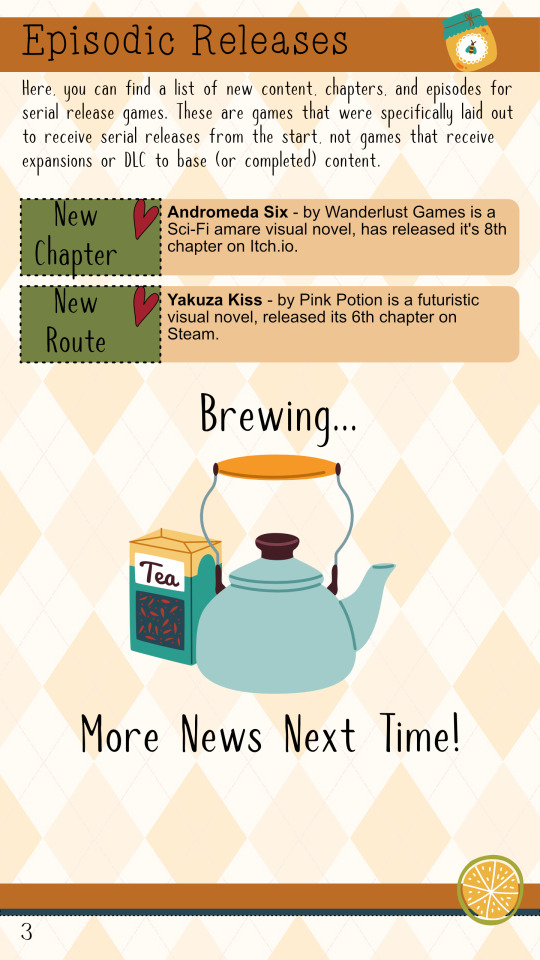

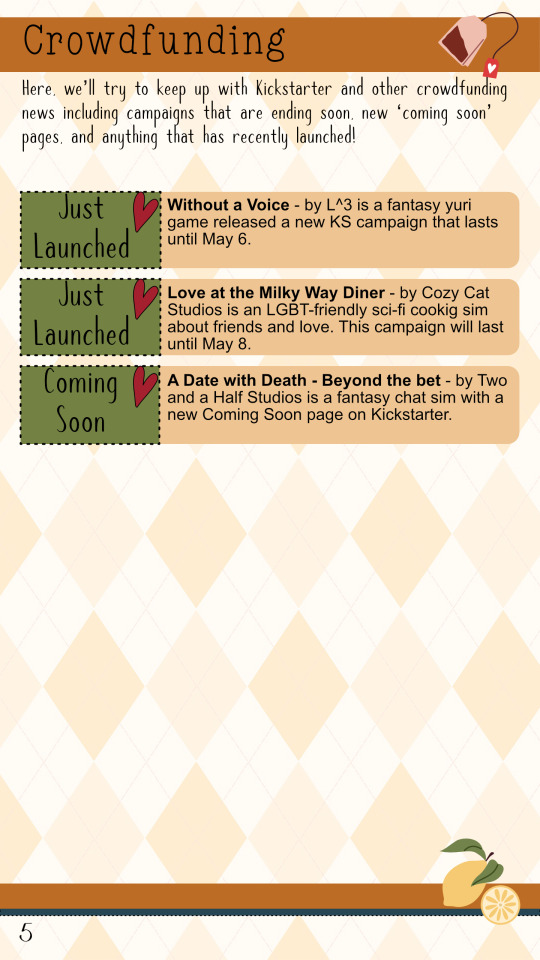

#amare bulletin#amare game#visual novel#otome game#interactive fiction#diverse games#amare#otome#news
40 notes
·
View notes
Text
Adventures in Librarian-ing
Today I read Morris Micklewhite and the Tangerine Dress by Christine Baldacchino to a class of Grade 2s.
It's a story about a boy who likes to wear dresses and the prejudice he faces about his interest.
An excerpt from storytime:
Me: They're not being very kind, are they?
Grade 2s: Noooo!
Girl: They're being very rude and mean!
Other Girl: Anyone can wear whatever they want! *classmates murmur in agreement*
Boy: And if girls can wear pants then boys can wear dresses! It's only fair! >:(
Me: Plus, in some cultures what we would consider dresses are considered boy clothes. Though is there really such a thing as boy clothes and girl clothes if everyone should be able to wear whatever they want?
Grade 2s: Nooo! They're just clothes!
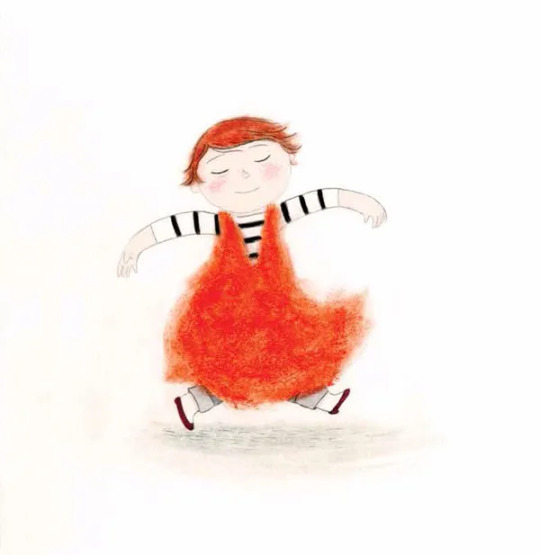
#libraryland#librarylife#school librarian#school libraries#the real life of me#libraries#canada#elementary school#the kids are alright#gendered clothe#men wearing skirts#men wearing dresses#children's librarians#children's literature#children's books#picture books#book reccomendation#book reccs#book recommendations#diverse fiction#diverse perspectives#diverse characters#children being cute#fairness#kids being cute#kids being kids#kids being funny
68 notes
·
View notes
Text

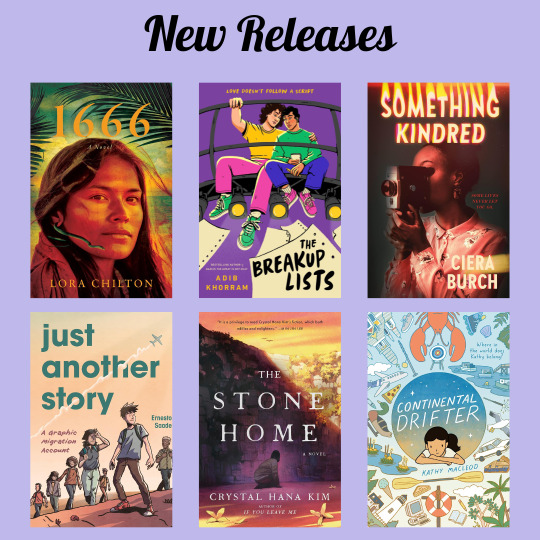

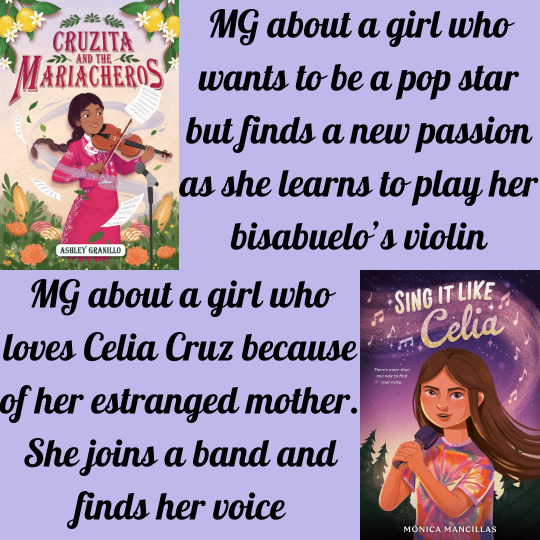
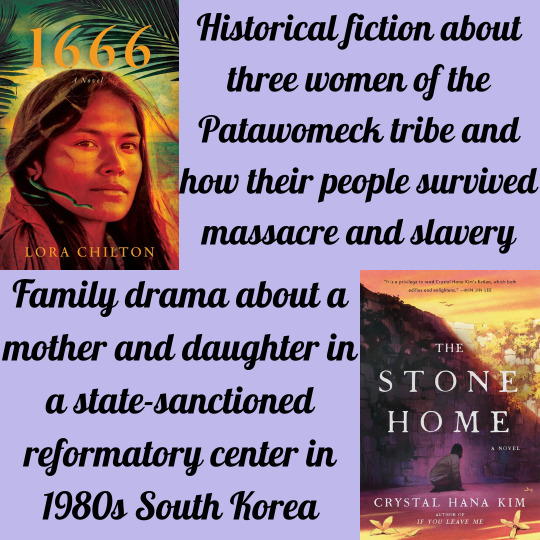


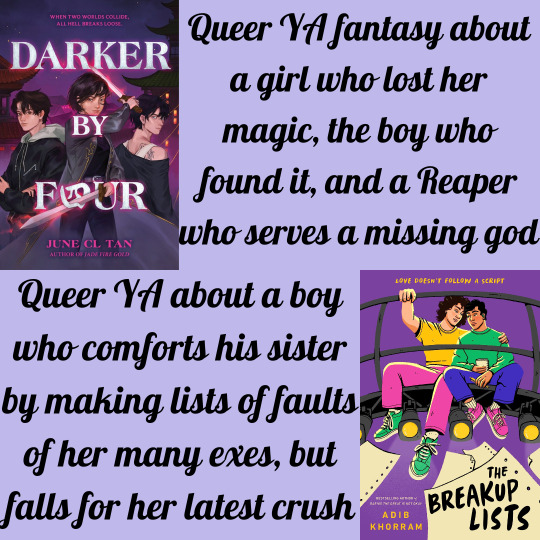
Happy book birthday to this week’s new releases! 📚
#booklr#books#diverse books#ya books#bookworm#mg books#lgbtq books#ya fantasy#ya romance#historical fiction#middle grade books#graphic novel#ya horror
11 notes
·
View notes